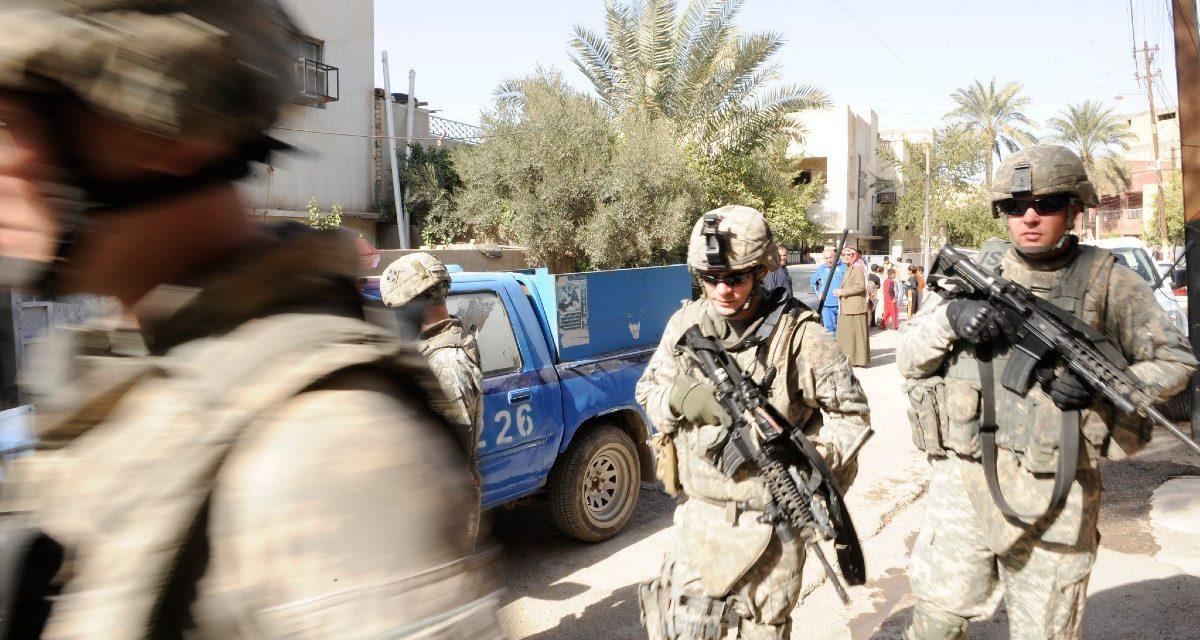Editor’s note: We’re relaunching our long-running War Books series with a new installment every Friday! The premise is simple and straightforward. We ask an expert on a particular topic to recommend five books on that topic and tell us what sets each one apart. It’s a resource for MWI readers who want to learn more about important subjects related to modern war and are looking for books to add to their reading lists.
Almost exactly twenty years ago, the Battle of Baghdad gave control of the Iraqi capital to the US-led coalition. As an inflection point in the war, the battle punctuated what had been a remarkably successful conventional military campaign. And yet Iraq’s descent into sectarian civil war and insurgency was soon to follow. To mark the twenty-year anniversary of the beginning of the long war in Iraq, we invited Frank Sobchak to contribute this edition of War Books. A retired Army colonel who coedited the US Army’s official history of the Iraq War, we gave him the following prompt: What five books would you recommend for readers to better understand the Iraq War?
The Endgame: The Inside Story for the Struggle for Iraq, from George W. Bush to Barack Obama, by Michael Gordon and Bernard Trainor.
Michael Gordon is without a doubt the best author that one can read to understand the strategic level of the conflict in Iraq. His access to American and Iraqi leaders, in-depth research, sound judgment, and superb writing are simply unparalleled and all his books on Iraq (the others being Cobra II and Degrade and Destroy) belong on this list. The Endgame is his opus, and it carefully charts the period from the fall of Saddam through the Iraqi civil war, the surge of US troops, and their eventual withdrawal. Gordon’s work is the best single volume book on the conflict, and it painstakingly captures the tragic arc of failed American strategy.
The Unraveling: High Hopes and Missed Opportunities in Iraq, by Emma Sky
Emma Sky is a British civilian who had worked extensively in nongovernmental organizations that focused on conflict resolution. She opposed the war but volunteered to serve as part of the Coalition Provisional Authority and later as the political advisor for General Ray Odierno during several tours to Iraq. As such, she had a unique insider’s perspective of the conflict that was neither American nor military and her writing is tremendously valuable. The Unraveling is a firsthand tragic telling of what could have been, which fairly and accurately highlights both the failures of the Bush administration in the period after the fall of Saddam and the missteps of the Obama administration’s attempts at war termination.
The U.S. Army in the Iraq War, Volume I and Volume II, edited by Joel Rayburn and Frank Sobchak with Jeanne Godfroy, Matthew Morton, James Powell, and Matthew Zais
Normally I would be extremely reluctant to include a work on which I had collaborated. That said, our team had unprecedented access because it was commissioned by General Odierno when he served as the Army chief of staff and supported by General Lloyd Austin, the commander of US Central Command. We conducted hundreds of interviews and declassified more than thirty thousand pages of handpicked documents, producing a two-volume set that weighs in at over 1,300 pages. Our focus was at the operational level, one that has been neglected by other histories of the conflict, and we covered the period from the end of Operation Desert Storm through the return of US forces to Iraq in 2014 to counter the Islamic State threat.
Plan of Attack: The Definitive Account of the Decision to Invade Iraq, by Bob Woodward
Bob Woodward is an American journalistic and literary institution, and his experience and gravitas gives him unparalleled access to sources that show in his work. His Plan of Attack covers the road to war, a topic that future strategists and planners should study carefully given the trail of mistaken assumptions and poor decisions made by the Bush administration. While some new information has become available that adds to his conclusions, Plan of Attack stands the test of time as the best single volume testament to the mistakes of that period.
Black Hearts: One Platoon’s Descent into Madness in Iraq’s Triangle of Death, by Jim Frederick
As a professional Army officer, Black Hearts, which covers the Mahmudiya/Yusufiya war crime—one of the worst of the war—is difficult to read. But its unflinching tactical-level review is critical to read to understand how bad leadership, savage combat, and criminal brutality can combine to produce such a terrible and tragic event. Leaders at all levels should understand the events and pathway that led to the crime and learn what actions could have prevented it. Indeed, the Mahmudiya/Yusufiya war crime has been used as a case study in several different professional military education settings, and Frederick’s book provides an encompassing understanding of the crime and the pathway leading to it.
Retired Colonel Frank Sobchak is the chair of irregular warfare studies at the Modern War Institute at West Point. A combat veteran of the Iraq War, he holds a PhD in international relations from the Fletcher School of Law and Diplomacy and coedited, along with retired Colonel Joel Rayburn, The U.S. Army in the Iraq War.
The views expressed are those of the author and do not reflect the official position of the United States Military Academy, Department of the Army, or Department of Defense.

